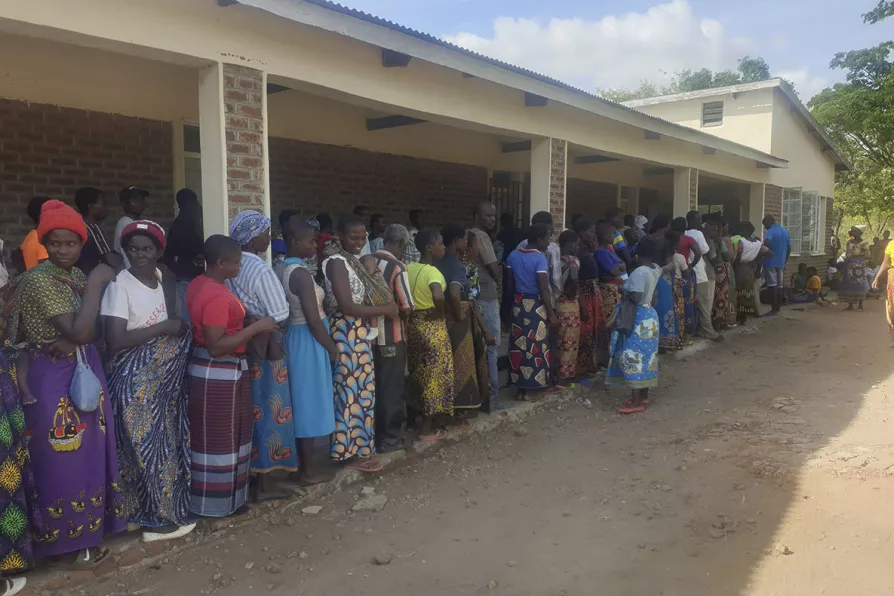Malawi declares a state of disaster over severe drought

 People queue for food at a World Food Programme distribution centre in Neno district southern Malawi, March 24, 2024
People queue for food at a World Food Programme distribution centre in Neno district southern Malawi, March 24, 2024
MALAWI declared a state of disaster on Sunday across most of the southern African nation as it struggles to cope with a drought that has paralysed food supply.
President Lazarus Chakwera said 23 of its 28 districts have been hit by the drought and Malawi urgently needs more than $200 million (£159m) in humanitarian assistance.
Malawi is the latest country in the region to have its food supply crippled by a severe dry spell that’s been linked to the El Nino weather phenomenon.
Similar stories














